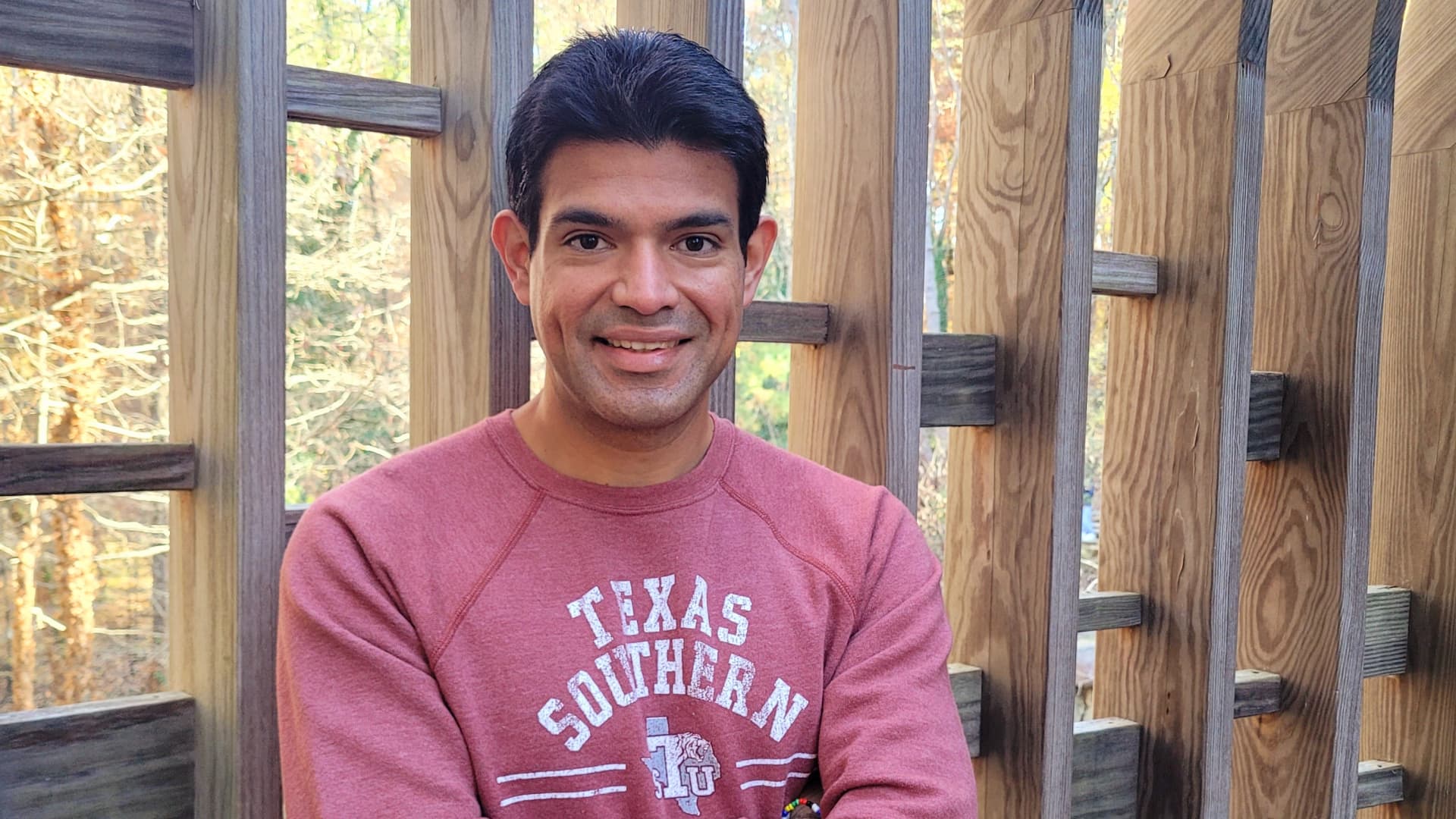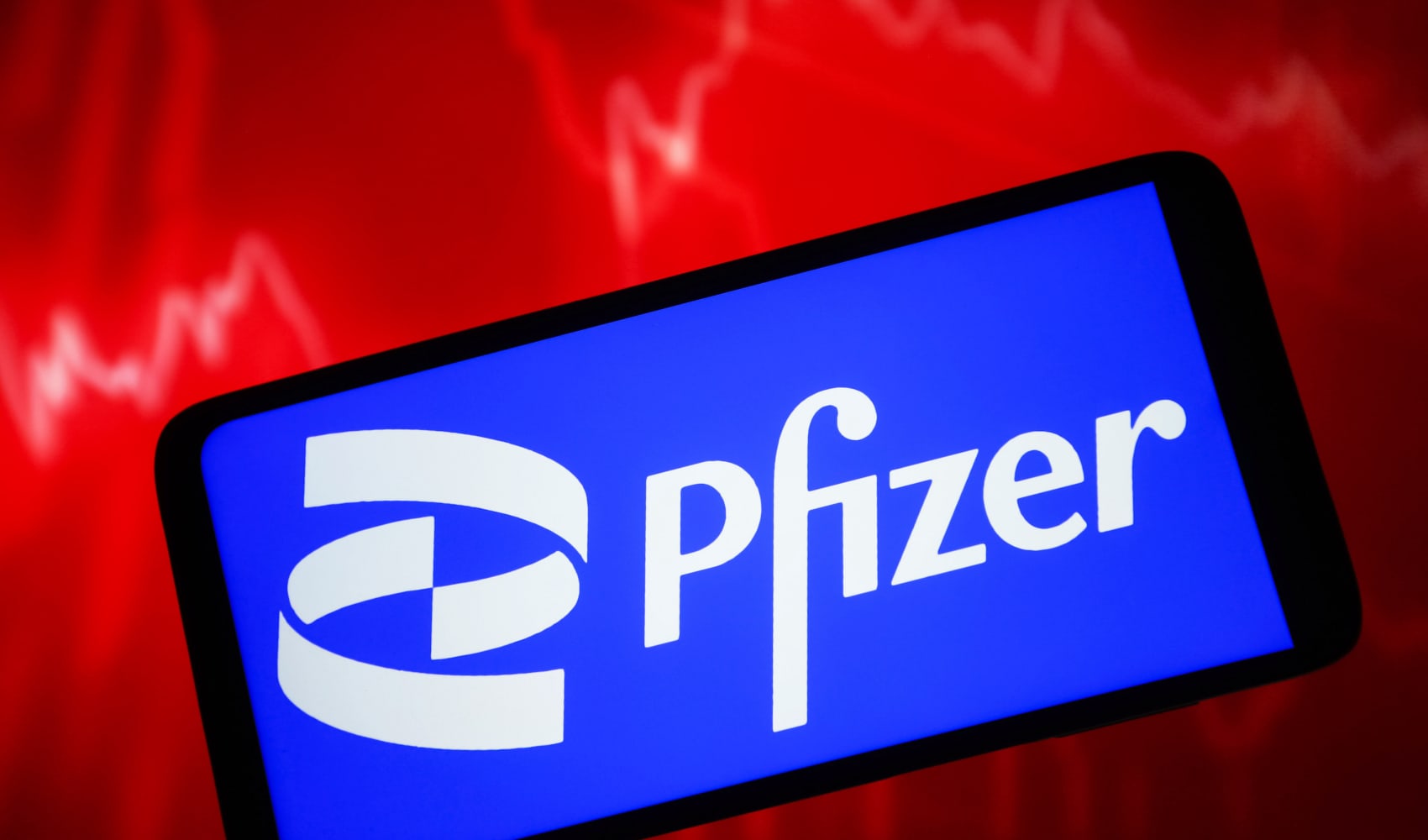
Alexandra Steinheimer has dreamt of a life free from student debt since she graduated college over a decade ago.
She holds about $20,000 in student loan debt, half of which is in federal loans. At times, the debt has felt like an "inescapable burden," the 35-year-old says, causing her to defer plans in her 20s to travel overseas, move to an apartment without roommates and save for retirement.
When President Joe Biden announced a sweeping student loan forgiveness plan to cancel up to $10,000 for millions of people with federal student loans and up to $20,000 for Pell Grant recipients, Steinheimer thought the news was too good to be true.
"I almost dropped my phone when I saw the news alert," Steinheimer, who is a Pell Grant recipient, tells CNBC Make It. "It felt like a huge weight had been lifted off of my shoulders, and I could finally breathe a bit easier."
Get Connecticut local news, weather forecasts and entertainment stories to your inbox. Sign up for NBC Connecticut newsletters.
In the U.S., student loan debt —which has ballooned to a $1.7 trillion crisis — has fallen heavily on the shoulders of younger borrowers: Sixty-seven percent of borrowers are under 40, according to the New York Federal Reserve.
The Biden administration's plan will erase the remaining student loan debt for about 20 million people, according to the White House, and alleviate debt for about 43 million borrowers in total.
In the week since Biden's announcement, borrowers ranging from freshly minted college graduates to doctors to parents starting to save for their children's education have sounded off on student loan forgiveness, with some borrowers calling the cancellation "life-changing" and others arguing that $10,000 isn't enough.
Money Report
'A little more breathing room goes a really long way'
In June, Steinheimer and her husband, who does not have student debt, bought and moved into their first home, a condo with two bedrooms and 1.5 baths in Washington D.C.
But financial stress has eclipsed the excitement of homeownership for Steinheimer, who is an IT manager at a nonprofit: "I do have some anxiety about making our mortgage payments and the other costs that creep up with having a new home," she explains.

Biden's loan forgiveness plan, however, will cut her student debt in half and significantly reduce her monthly payments, which Steinheimer says is a "gamechanger" for her as she begins this next chapter of her life. She's planning to use some of the money she had saved for loan payments for her mortgage and furnishing the condo.
"Having a little more breathing room at the end of the month goes a really long way," she says. "It's going to empower us to stay on top of our other financial obligations."
'My debt is still astronomical'
Mikey Collard accrued about $100,000 in federal student loan debt while pursuing his master's degree in public relations through a two-year program at the University of Southern California. He had taken out loans for his bachelor's degree as well — about $6,400 — which he paid off soon after graduating.
Collard, 39, doesn't regret going into debt for his master's. He believes the program, which he completed in 2012, has helped him net a higher salary and build a sustainable career — now, he's a senior vice president at the communications firm he works for in Salt Lake City.
But because of mounting interest rates, Collard says his student debt is "still astronomical": he's paid about $85,000 toward the loans, and still has $69,311 left to go.
The $10,000 in forgiveness he's expecting to receive will help, but he says he will still be making hefty loan payments each month "for the foreseeable future."
"I wish more could be done to reduce interest rates on student loans because the rates are crazy and that's what's crippling so many borrowers, including myself," he says.
Collard has three children ages 8, 6 and 2, and is already worried about how he's going to help them pay for college.
"I don't have any hope that the student debt crisis is going to be solved in 10 years, when my oldest would likely apply for college," he says. "Between paying off my own loans and figuring out how to financially support my kids in college, I'll probably be paying student loans one way or another for the rest of my life … it's never-ending."
'I hope this is just the start'
Until recently, Juan Antonio Sorto, 37, was convinced that attending graduate school would bolster his family's fortune.
"When I graduated college 15 years ago, I didn't think a bachelor's degree would give me a sufficient earning potential to take care of my mother, grandmother and sister," he says.
A first-generation college graduate, Sorto completed undergrad debt-free before working as a supervision officer for probationers and parolees for a few years. Now, he's finishing a PhD in urban planning and environmental policy at Texas Southern University and is facing about $250,000 in federal student loan debt for his master's and PhD.
Sorto is part of a smaller group of borrowers with six-figure debt: About 7% of people with federal student loan debt owe more than $100,000, the Washington Post reports.
The Biden administration's proposed student loan plan would shave $10,000 off of his debt.

In 2020, doctoral degree holders earned a median weekly salary over 20% higher than those with a bachelor's degree, according to the U.S. Bureau of Labor Statistics. Borrowing for graduate education, however, has been a major driver of the growth in federal student loan debt.
Sorto is still excited about the professional doors his PhD will open, but has become disillusioned with the notion that graduate school is worth racking up six figures in student loan debt.
"I hope this is just the start," he says of loan forgiveness. "There are still so many things that need to be fixed in the system, including the cost of college, which has just become ridiculously high."
'I'm breaking the cycle of debt for my kids'
Tina Gass was the only person in her immediate family to attend college — a feat that took her 20 years to complete and cost her about $45,000 in student loans.
She started her bachelor's degree program in 1997 at the University of Nebraska, taking breaks to work and care for her children, before finishing her degree at Bellevue University in 2018. Gass lives with her husband and two children, ages 11 and 9, in Omaha, where she works as a call center operations director for AAA.
The 43-year-old has about $18,000 left in loans to pay off, most of which are private — she anticipates that she will qualify for $3,700 in relief under the administration's loan forgiveness plan, the remainder of her federal student loan debt.
Even that amount will reduce her monthly loan payments and help her start saving for her children's college education.
What so often gets lost in the conversation about student loan forgiveness, Gass says, is how canceling that debt doesn't just help borrowers — it enables millions of people to create generational wealth for their families.
"I'm breaking the cycle of debt for my kids," Gass says.
"Getting a degree has afforded me a more comfortable lifestyle and a career that I love, but how do I convert that to where my kids don't have to make the same sacrifices I did and aren't saddled with the same debt I, and so many other people in this country, continue to struggle with?"
Check out:
Student debt experts say $10,000 isn't enough specifically for Black borrowers—here's why
Student loan forgiveness: Borrowers could see relief before December, Biden admin confirms
Sign up now: Get smarter about your money and career with our weekly newsletter






